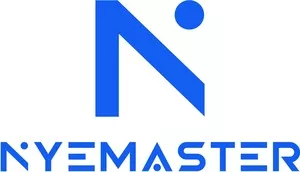- within Employment and HR topic(s)
- with readers working within the Telecomms and Law Firm industries
- within Cannabis & Hemp topic(s)
When a compensable work injury is caused by a third party, the worker is entitled to workers' compensation benefits from their employer and may also pursue a claim against the third-party tortfeasor. If the employee chooses to file a lawsuit against the third party, under Iowa Code §85.22, the employer/carrier is entitled to indemnification for the amount of work comp benefits paid from any recovery.
If the employee chooses not to pursue the third-party claim, Section85.22 allows the employer/carrier to do so directly, through subrogation. Section 85.22 sets forth the requirements for this procedure, which include providing notice to the employee before filing the lawsuit:
In case the employee fails to bring such action within ninety days, or where a city or a city under special charter is such third party, within thirty days after written notice so to do given by the employer or the employer's insurer, as the case may be, then the employer or the insurer shall be subrogated to the rights of the employee to maintain an action against such third party, and may recover damages for the injury to the same extent that the employee might.
Iowa Code §85.22 (2022) (emphasis added).
In Midwest Builders' Casualty Mutual Co. v. RP Constructors, LLC., 2025 WL 2057804 (Iowa Ct. App. July 23, 2025), 23-1796 an employee was injured while working on a highway, when two employees of RP Constructors mistakenly told him the hose pressure was off, causing the hose to knock the employee backward. The employee received work comp benefits from his employer's insurer, Midwest Builders' Casualty Mutual Co. ("Midwest"). About two years later, when the employee had not brought suit against RP Constructors, Midwest sent the employee a letter stating it intended to file the suit since the employee had "not done so within 90 days of the accident." Forty-one days after sending the letter, Midwest sued RP Constructors for negligence.
The District Court granted summary judgment in favor of RP Constructors on the basis that Midwest failed to follow the statute, which was interpreted to require a 90-day notice to the employee. On appeal, Midwest challenged the ruling, offering other interpretations of Section85.22. These were rejected by the Court of Appeals, which relied on interpretations provided by past precedent. Using these interpretations, the Court of Appeals found the District Court was correct in holding that Midwest did not provide the employee 90 days' notice (akin to a demand) as required by the statute, and as such, failed to secure subrogation rights.
As illustrated by the arguments and the Court's analysis, the wording of Section 85.22 is subject to various interpretations. Although the Court of Appeals followed interpretations provided by past precedent, the result in this case is inconsistent with the spirit of the law. As noted by the Court, "[s]ubrogation is a doctrine that originated in equity to give relief to a person or entity that pays a legal obligation that should have, in good conscience, been satisfied by another." (citing Allied Mut. Ins. v. Heiken, 675 N.W.2d 820, 824 (Iowa 2004). The notice requirement of Section 85.22 (whether 90 days or otherwise) is intended to protect the employee's interest in the subrogation process, not that of the tortfeasor. The Court's decision here effectuates a windfall for the wrongdoer, subverting the equitable doctrine itself.
Application for Further Review with the Iowa Supreme Court has been denied.
The content of this article is intended to provide a general guide to the subject matter. Specialist advice should be sought about your specific circumstances.
[View Source]





